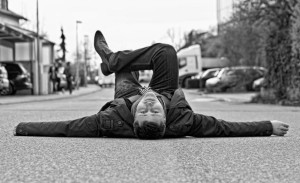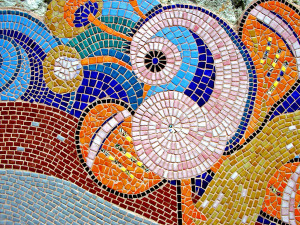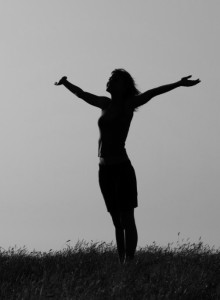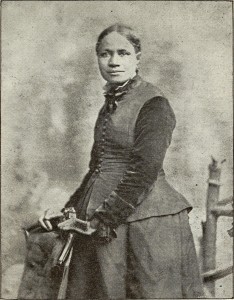From Your Minister
April 1, 2016Podcast: Download (Duration: 5:34 — 5.1MB)
Subscribe: More
 Now that I’m an adult, I can see that my father was jealous of my older brother. An only child himself, he was used to having the full attention of his parents, and then his wife. Read more →
Now that I’m an adult, I can see that my father was jealous of my older brother. An only child himself, he was used to having the full attention of his parents, and then his wife. Read more →
REsources for Living
April 1, 2016Podcast: Download (Duration: 4:28 — 4.1MB)
Subscribe: More
The Passover story is a story of freedom. And it’s inspired a lot of people who were seeking freedom, including slaves in the American South. Read more →
Notice of Annual Meeting
April 1, 2016Podcast: Download (Duration: 1:20 — 1.2MB)
Subscribe: More
To all members of the Church of the Larger Fellowship, Unitarian Universalist
Per Article VII, Sections 1 and 2, of the Church of the Larger Fellowship (CLF) Bylaws, the 44th Annual Meeting will be held via conference call and screen sharing on June 14, 2016 at 6:00PM EDT. Read more →
Did You Know?
April 1, 2016Podcast: Download (Duration: 0:17 — 280.8KB)
Subscribe: More
That you can listen to Quest Monthly as a podcast? Read more →
We Have Not Come Here to Take Prisoners
April 1, 2016Podcast: Download (Duration: 0:56 — 878.4KB)
Subscribe: More
We have not come here to take prisoners
But to surrender ever more deeply
To freedom and joy. Read more →
Freedom
April 1, 2016April 2016
I wish that every human life might be pure, transparent freedom. —Simone de Beauvoir
Articles
Free for All
Rev. Gretchen HaleyI was 22, nursing a broken heart, and I knew for sure that I had to get out of town. Read more »
The Power and Poverty of Freedom
Rev. Susan Frederick-GrayFreedom is not just a crucial principle in our religious tradition. It is also a foundational value for the United States. Read more »
Cultivating the Courage to Act
Lena K. GardnerDid you know it’s part of the CLF mission to cultivate the courage to act? Help us continue to live into our mission, living into freedom by being bold and loving a broken world. Please make a $100 contribution or give what you can now, by visiting CFLUU or by calling 1-800-231-3027. Read more »
To All Get Free Together
Chris CrassTo become an anti-racist faith community, the key question for a white/white majority community is not “How do we get people of color to join our faith community?” Read more »
Slipped the Bonds
Rev. Vanessa SouthernThere are no summer camps open during the last week of August, so my family has taken to spending that week at the beach. Read more »
From Your Minister
Rev. Meg RileyNow that I’m an adult, I can see that my father was jealous of my older brother. An only child himself, he was used to having the full attention of his parents, and then his wife. Read more »
REsources for Living
Rev. Dr. Lynn UngarThe Passover story is a story of freedom. And it’s inspired a lot of people who were seeking freedom, including slaves in the American South. Read more »
Notice of Annual Meeting
Rebecca ScottPer Article VII, Sections 1 and 2, of the Church of the Larger Fellowship (CLF) Bylaws, the 44th Annual Meeting will be held via conference call and screen sharing on June 14, 2016 at 6:00PM EDT. Read more »
We Have Not Come Here to Take Prisoners
Quest for MeaningWe have not come here to take prisoners, But to surrender ever more deeply, To freedom and joy. Read more »
Freedom
Quest for Meaning“I wish that every human life might be pure, transparent freedom.” —Simone de Beauvoir Read more »
Moving Toward Freedom
March 31, 2016Frances Ellen Watkins Harper was born a free Black woman in Baltimore, Maryland in 1825. She was raised in the household of her uncle, an educator and African Methodist Episcopal (AME) minister. He was also an abolitionist—a person who objected to the enslavement of blacks. Harper became an educator and abolitionist as well. She also became a writer, publishing her first book of poetry at twenty and later in life publishing the first short story by an African American woman. Her writing often urged Blacks, women, and people in oppressed groups to take a firm stand for equality and freedom.
In 1850, the Fugitive Slave Act was passed. It became dangerous to be a free Black in Maryland because slave owners could claim Black people were runaway slaves and force them into slavery. So, Harper moved farther north to Ohio and then to Philadelphia. She taught, ran part of the Underground Railroad helping slaves escape to freedom, and lectured around the country.
In 1863, abolitionists celebrated success with the passage of the Emancipation Proclamation, which freed the slaves. But there was a long road ahead to full equality, and Harper spent the rest of her life working for women as well as African Americans to have access to full freedom and justice.
To read some of Harper’s poems click here.
Beautiful and Broken
March 1, 2016A mosaic is a kind of artwork that is made by creating a picture out of pieces of pottery. It’s a way that something broken can turn into something beautiful.
One way to play with the idea of a mosaic is to draw an abstract picture, full of color and shapes, but not necessarily of a particular thing like a cat or a robot. Then cut the picture up. Break it on purpose. Then glue the pieces onto a piece of construction paper, leaving just a little gap between each piece.
You will create a new, and maybe surprising, piece of art by taking the original drawing apart and putting it back together in a different form.
Love Larger
We rely heavily on donations to help steward the CLF, this support allows us to provide a spiritual home for folks that need it. We invite you to support the CLF mission, helping us center love in all that we do.
Support the CLF
Can you give $5 or more to sustain the ministries of the Church of the Larger Fellowship?
If preferred, you can text amount to give to 84-321
Latest Spiritual Reflection Posts
Latest Quest Monthlies
Weekly newsletter
About
Quest for Meaning is a program of the Church of the Larger Fellowship (CLF).
As a Unitarian Universalist congregation with no geographical boundary, the CLF creates global spiritual community, rooted in profound love, which cultivates wonder, imagination, and the courage to act.








